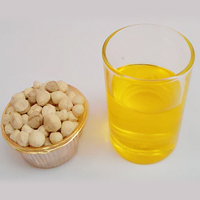Weight loss

Moringa olifera leaves are low in fat and packed with so many essential nutrients, which offer you a healthy alternative to eating many higher calorie foods.
Moringa leaves provide 42% of the recommended daily minimum requirement for protein, and 125% of the recommended daily minimum requirement for calcium.
The B-vitamins in moringa leaves also help you digest and convert foods to energy and may increase your metabolism.
In India moringa leaves are eaten raw, cooked or taken as a tea, making them a convenient food and nutrition source.
Moringa supplements are widely used for weight loss purpose.
Obesity and Diabetes
Overweight:
Overweight refers to an excess amount of body weight that may come from muscles, bone, fat, and water
Obesity:
Obesity refers to an excess amount of body fat
IN USA
Data from the National Health and Nutrition Examination Survey, 2009–2010
More than 2 in 3 adults are considered to be overweight or obese.
More than 1 in 3 adults are considered to be obese.
More than 1 in 20 adults are considered to have extreme obesity.
About one-third of children and adolescents ages 6 to 19 are considered to be overweight or obese.
More than 1 in 6 children and adolescents ages 6 to 19 are considered to be obese.
IN UK
1 in 5 adults overweight and one in every 15 obese.
It is a well known fact that if you are overweight or obese person, you are at greater risk of developing type 2 diabetes, especially if you have excess weight around your tummy (abdomen).
Having excess abdominal fat (i.e. a large waistline) is known as central or abdominal obesity, a particularly high-risk form of obesity.
Insulin resistance
Abdominal fat causes fat cells to releases a chemical called ‘pro-inflammatory’, which can make the body less sensitive to the insulin it produces by disrupting the function of insulin responsive cells and their ability to respond to insulin.
This is known as insulin resistance – a major trigger for type 2 diabetes.
According to World Health Organization (WHO)
2.8 million people dying each year as a result of being overweight or obese
In 2008, over 40 million preschool children were overweight worldwide
Giving up watching television for a week reduces a child’s waist size by an average 2.3cm (just under 1 inch)
Obesity and Cancer
Overweight or obese may increase cancer risk and growth. Obesity is linked with cancer include:
- Abnormal levels of insulin andInsulin-like growth factor 1 (IGF–1) somatomedin C, which may help some cancers develop.
- Fat cells or adipocyte (Adipose cell)may also effect processes that regulate cancer cell growth.
- Higher amounts of estrogen produced by adipocyte or fat tissue, which can initiate the development of some cancers, such as breast and endometrial cancers( corpus uterine cancer or corpus cancer)
- Obese people have chronic low-level inflammation, which is linked with increased cancer risk.
Types of cancer linked to overweight or obesity
-
Breast
-
Colorectal
-
Uterine
-
Kidney
-
Head and neck
-
Esophageal
-
Pancreatic
-
Endometrium (lining of the uterus)
-
Prostate
-
Gallbladder
-
Thyroid
Skin Care

Moringa oil contains 72% oleic acid . Oleic acid is a fatty acid that occurs naturally in various animal and vegetable fats and oils. Oleic acid is an odorless, colorless oil, though commercial samples may be yellowish.
In chemical terms, oleic acid is classified as a monounsaturated omega-9 fatty acid, abbreviated with a lipid number of 18:1 cis-9. It has the formula CH3(CH2)7CH=CH(CH2)7COOH.[2] The term “oleic” means related to, or derived from, olive oil which is mostly composed of oleic acid.
Moringa oleifera oil easily penetrates deeply into the skin layers and delivering vital essential nutrients and also helping the skin and hair retain moisture.
This statement has not been evaluated by the Food and Drug Administration. This product is not intended to diagnose, treat, cure, or prevent any disease.
